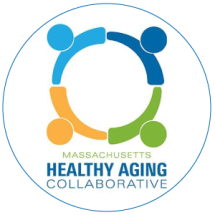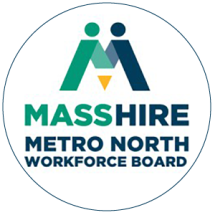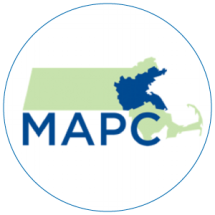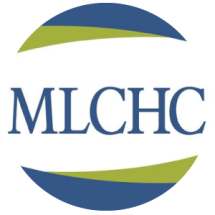WESTBOROUGH, Mass. – Today, the Healey-Driscoll Administration and the Massachusetts Broadband Institute (MBI) at MassTech announced $20 million in new grants through the state’s Digital Equity Partnerships Program, which supports high-impact and scalable initiatives that reach residents most affected by the digital divide.
The grants will fund a range of services, including regional networks of digital navigators who will train individuals in digital literacy, device refurbishment and distribution, neighborhood-scale broadband connectivity, digital education for workforce development, telehealth resource navigation, and a statewide effort to provide free WiFi in affordable housing and public housing developments.
“The Digital Equity Partnerships Program supports organizations across Massachusetts that help residents build their digital skills and get online so they can participate fully in our state economy, access modern health services, get connected to loved ones, and so much more,” said Massachusetts Secretary of Economic Development Yvonne Hao. “We are excited to announce today’s grants through the Massachusetts Broadband Institute, which will help make technology more accessible for everyone across the state.”
The grant recipients include:
- AgeSpan, which will receive $3 million
- The Massachusetts League of Community Health Centers, which will receive $3.75 million
- The Metropolitan Area Planning Council, which will receive $5.6 million
- The Metro North Workforce Investment Board, which will receive $4.1 million
- UMass Lowell, which will receive $4.0 million
“These monumental grants ensure that thousands of residents in communities across the state will have the tools and training they need,” said MBI Director Michael Baldino. “The digital divide is narrowing, and that is due to our strategic efforts to expand infrastructure and boost access. When high-speed internet is available in a Massachusetts neighborhood, these programs ensure that residents in that neighborhood can take advantage of everything the digital economy has to offer.”
The Digital Equity Partnerships Program launched in September 2022 to support organizations across the state in implementing projects that meet the digital equity goals outlined in the Commonwealth’s 2021 ARPA COVID recovery legislation. The Program is comprised of six initiatives that applicants can focus on within proposals:
- Wi-Fi Access: Implementing Wi-Fi in affordable housing and/or low-income neighborhoods.
- Public Space Internet Modernization: Improving infrastructure and resources in public.
- Connectivity for Economic Hardship: Providing “hot spots” to low-income/housing insecure individuals.
- Digital Literacy: Establishing digital literacy programs to train populations on devices, resources, and digital tools.
- Device Distribution and Refurbishment: Securing new and/or refurbished devices for distribution.
- Education, Outreach, and Adoption Support Initiative: Conducting outreach to increase the success of digital equity programs like the Federal Communications Commission’s Affordable Connectivity Program (ACP).
A full project summary for each of the grant recipients announced today is below:
|
Organization / Municipality |
Project Summary |
||
|---|---|---|---|
|
AgeSpan on behalf of the Mass Healthy Aging Collaborative |
Award: $3,026,437 AgeSpan will serve as the contracting and fiscal agent on behalf of the Massachusetts Healthy Aging Collaborative and includes the following organizations:
Counties Involved:
|
||
|
Organization: Massachusetts League of Community Health Centers |
Award: $3,751,796 The FQHCs Telehealth Consortium will provide the required staff capacity, training and coaching resources, oversight, and evaluation to screen thousands of patients at FQHCs for digital access needs. The FQHCs Telehealth Consortium will inform patients about where and how to participate in digital literacy programs across the state while also screening for other critical needs, including housing, food security, transportation, and employment. The Consortium will also provide digital resources to residents through its expanded Telehealth Navigator Program and enroll residents in the ACP. |
||
|
Organization: Metro North Workforce Investment Board |
Award: $4,118,757
The service area for the JEDI Consortium covers the following MassHire cities and towns:
|
||
|
Organization: Metropolitan Area Planning Council (MAPC) |
Award: $5,600,515 |
||
|
Organization: UMass Lowell |
Award: $4,000,000
UMass Lowell’s higher education community partners will provide the student workforce and cultural competency to drive outreach, engagement, and rollout of digital services. The UMass Lowell team will offer the technical skills, student digital navigators model, project management resources, and procurement expertise. Specific outcomes will include: deploying three neighborhood-scale mesh Wi-Fi networks; improving six public facilities with broadband service; creating a multi-tiered digital literacy and navigation initiative that establishes a regional help desk at UMass Lowell and advances new digital literacy programs; distributing 1,200 new or refurbished devices; and expanding ACP outreach and adoption programs at six community-based organizations. |
The announcement is the latest in a string of grants through MBI programs and initiatives totaling nearly $40 million in awards this year. In October 2023, the MBI announced over $5 million to the City of Boston to expand digital equity, including $4.55 million from the Digital Equity Partnerships Program and $450,000 from the MBI’s Municipal Digital Equity Planning Program to assist with broadband and digital equity planning efforts. In April, MBI awarded $14 million for several grants through the Digital Equity Partnerships Program, including projects from Tech Goes Home, Vinfen, and the Western Mass. Alliance for Digital Equity led by Springfield-based Baystate Health. MBI also conducted a statewide Internet for All Listening Tour, meeting with residents, local leaders, and community organizations in every region of the Commonwealth to discuss topics related to digital equity.
Statements of Support
“UMass Lowell is proud to partner with the Healey-Driscoll administration and Massachusetts Broadband Institute at MassTech to achieve internet access for every Massachusetts community. Digital equity, like higher education, goes hand in hand with empowering an informed workforce and building a strong economy,” said UMass Lowell Chancellor Julie Chen. “This grant not only affords our faculty an opportunity to effect positive change in fellow Gateway Cities, but builds on the university’s guarantee of career-connected experiences. UMass Lowell students will be at the forefront of this project interacting with residents and driving outreach, engagement, and rollout of digital services in these communities.”
“Alongside our partners, we are proud to be part of MBI’s Digital Equity Partnership Program – an incredible opportunity that will address digital equity among older adults in more than 70 communities,” said James Fuccione, Executive Director of the Massachusetts Healthy Aging Collaborative. “We are all aging and technology is always advancing, so our goal is to create a system of support to improve digital access for older adults now and in the future so that we can all fully participate and engage in our communities.”
“We are thrilled to be part of MBI’s Digital Equity Partnerships Program,” said MassHire Metro North Workforce Board’s President and CEO Chris Albrizio-Lee. “This significant investment will allow us and our partners to work towards bridging the digital divide in the Metro North and North Shore regions of Massachusetts.”
"MAPC is proud to continue partnering on this work to expand broadband to our most vulnerable communities in Massachusetts. We strive to always center equity in the projects we undertake, and closing the digital divide is as critical to our region's future as healthy air, clean water, and safe housing," said Elizabeth Weyant, Deputy Executive Director of the Metropolitan Area Planning Council (MAPC) in Boston. "We look forward to seeing this digital equity work scale up in impact, expanding access to jobs, education, and more for folks across Greater Boston."
“We are excited to partner with Community Care Cooperative and Link Health to bring internet access through our Telehealth Navigator Program work under the FQHC Telehealth Consortium, which helps bridge the digital divide and health inequities for our health center patients,” said Massachusetts League of Community Health Centers Health Informatics Vice President Susan Adams, PMP. “We are grateful to be working alongside MBI and the Healey-Driscoll administration. These navigators will empower patients to ensure they are not left behind in the shift towards hybrid model of care environments.”
“We are looking forward to working with the Massachusetts League of Community Health Centers, Link Health, and MBI to continue the efforts of the FQHC Telehealth Consortium to address barriers to digital equity and ensure all health center patients and their families have the tools they need to access telehealth, remote patient monitoring, and all forms of technology-enabled care,” said Christina Severin, President & CEO of C3.
###
About the Massachusetts Broadband Institute
A division of the Massachusetts Technology Collaborative, the Massachusetts Broadband Institute (MBI) is working to extend high-speed internet access and availability across the Commonwealth. To achieve this, the MBI utilizes state and federal funding to launch infrastructure expansion programs that target areas of the state which lack high-speed internet access, as well as digital equity programs which tackle barriers to internet adoption and increase availability, addressing critical issues around affordability, enhanced public Wi-Fi, the need for internet-enabled devices, and digital literacy training. Learn more about the Massachusetts Broadband Institute at https://broadband.masstech.org.






